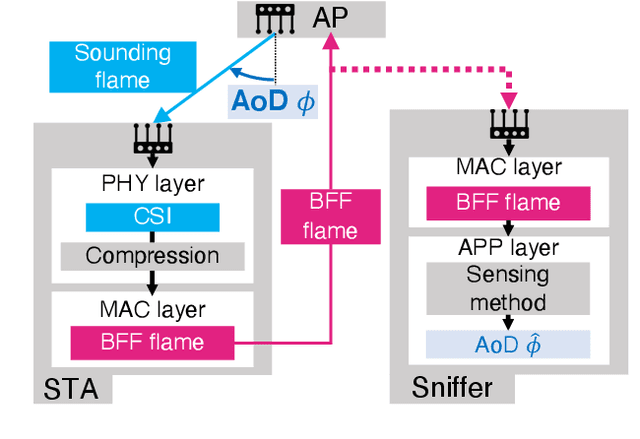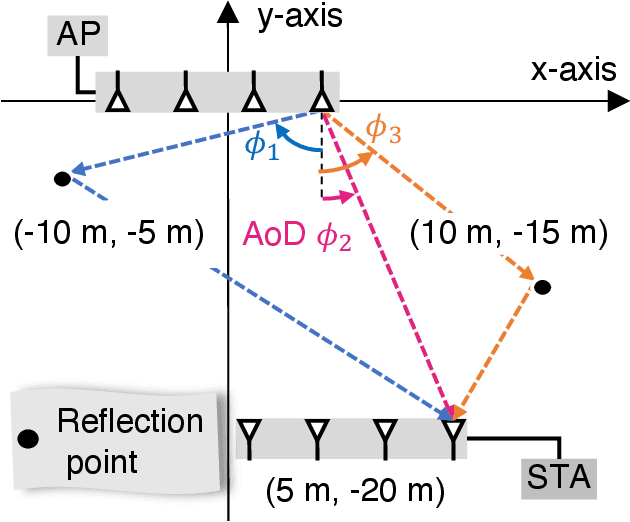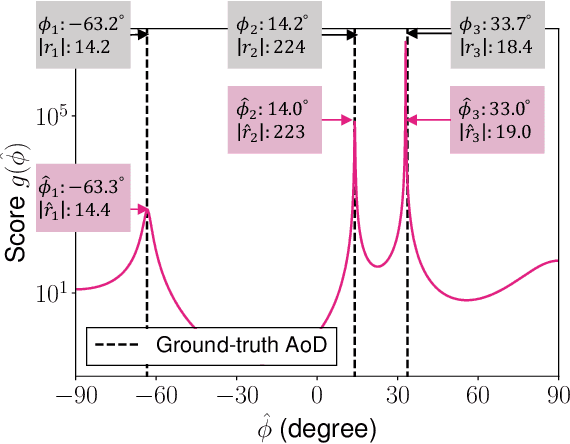Beamforming Feedback-based Model-driven Angle of Departure Estimation Toward Firmware-Agnostic WiFi Sensing
Paper and Code
Oct 27, 2021


This paper proves that the angle of departure (AoD) estimation using the multiple signal classification (MUSIC) with only WiFi control frames for beamforming feedback (BFF), defined in IEEE 802.11ac/ax, is possible. Although channel state information (CSI) enables model-driven AoD estimation, most BFF-based sensing techniques are data-driven because they only contain the right singular vectors of CSI and subcarrier-averaged stream gain. Specifically, we find that right singular vectors with a subcarrier-averaged stream gain of zero have the same role as the noise subspace vectors in the CSI-based MUSIC algorithm. Numerical evaluations confirm that the proposed BFF-based MUSIC successfully estimates the AoDs and gains for all propagation paths. Meanwhile, this result implies a potential privacy risk; a malicious sniffer can carry out AoD estimation only with unencrypted BFF frames.
 Add to Chrome
Add to Chrome Add to Firefox
Add to Firefox Add to Edge
Add to Edge